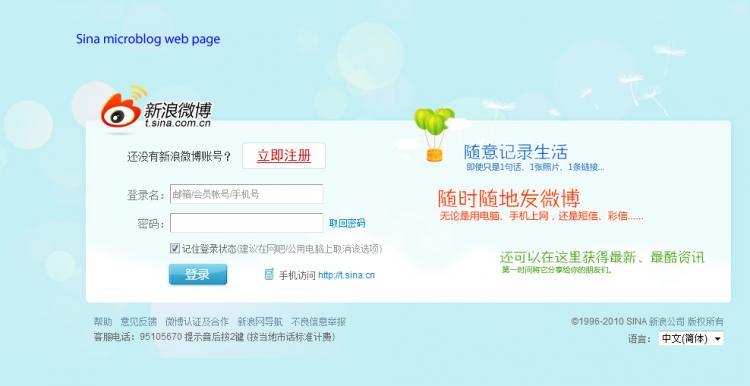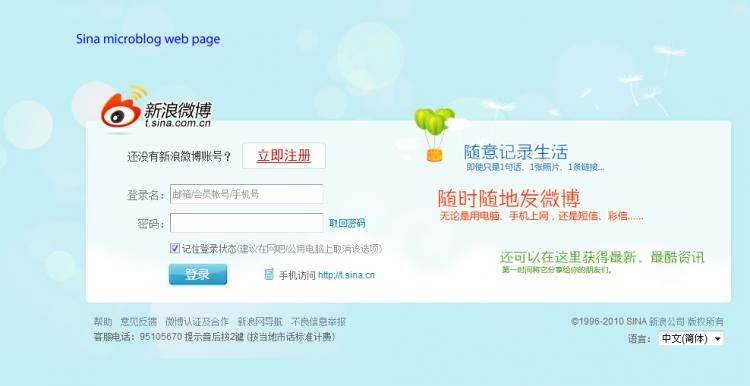“Monitoring and censoring content on the Sina microblog is a very big headache,” said Chen Tong, chief editor of China’s online media giant Sina. The microblog, also known as Weibo, is a Twitter-like service launched by Sina.
Speaking at the 3G Wireless New Media Industry Development Summit, Chen said that the quick-spreading nature of microblog posts make censorship, or the “monitoring and control of inappropriate content,” very difficult.
“In a matter of a few minutes, it [a microblog post] can reach tens or hundreds of thousands of people,” he said.
At the core of the Chinese Communist Party’s (CCP) internet policing mechanisms is the “50 Cent Party,” a group of paid commentators who work to skew public opinion on blogs and internet message boards in favor of the CCP. They are named after the price they are said to be paid per online post—50 Chinese cents. Approximately 300,000 of these “soldiers” work for the CCP, according to a September 2008 Guardian report.
In a June 13 Radio France Internationale (RFI) report, Chen said that Sina adopts a “double-team triple-check” method to censor the microblog posts, with teams of censors and editors working together through hourly e-mail briefs and daily censorship meetings. A “multiple reporting” structure requires every editor to report controversial content.
Trained staff, some with as much as 12 years of experience, work 24/7 to monitor the content, Chen said. A link to report questionable content also exists on every Sina page, and users are encouraged to use it—those who do are often “rewarded secretly.”
When “inappropriate content” is reported, the response measures taken by Sina include removing the offender’s message, communicating with the offender in private, openly admonishing the offender and deleting the offender’s account.
The transcript of Chen’s RFI report disappeared the same day it was posted online—not just from Sina, but from dozens of websites that link to the Sina page as well.
The communist regime maintains tight control over all media and information channels in China. “The Great Firewall” blocks sensitive material on the Internet, while home-grown social networking programs with layers of censorship attempt to substitute for networking sites such as Facebook and Twitter, which remain inaccessible in China.
Read the original Chinese article.
Speaking at the 3G Wireless New Media Industry Development Summit, Chen said that the quick-spreading nature of microblog posts make censorship, or the “monitoring and control of inappropriate content,” very difficult.
“In a matter of a few minutes, it [a microblog post] can reach tens or hundreds of thousands of people,” he said.
At the core of the Chinese Communist Party’s (CCP) internet policing mechanisms is the “50 Cent Party,” a group of paid commentators who work to skew public opinion on blogs and internet message boards in favor of the CCP. They are named after the price they are said to be paid per online post—50 Chinese cents. Approximately 300,000 of these “soldiers” work for the CCP, according to a September 2008 Guardian report.
In a June 13 Radio France Internationale (RFI) report, Chen said that Sina adopts a “double-team triple-check” method to censor the microblog posts, with teams of censors and editors working together through hourly e-mail briefs and daily censorship meetings. A “multiple reporting” structure requires every editor to report controversial content.
Trained staff, some with as much as 12 years of experience, work 24/7 to monitor the content, Chen said. A link to report questionable content also exists on every Sina page, and users are encouraged to use it—those who do are often “rewarded secretly.”
When “inappropriate content” is reported, the response measures taken by Sina include removing the offender’s message, communicating with the offender in private, openly admonishing the offender and deleting the offender’s account.
The transcript of Chen’s RFI report disappeared the same day it was posted online—not just from Sina, but from dozens of websites that link to the Sina page as well.
The communist regime maintains tight control over all media and information channels in China. “The Great Firewall” blocks sensitive material on the Internet, while home-grown social networking programs with layers of censorship attempt to substitute for networking sites such as Facebook and Twitter, which remain inaccessible in China.
Read the original Chinese article.





